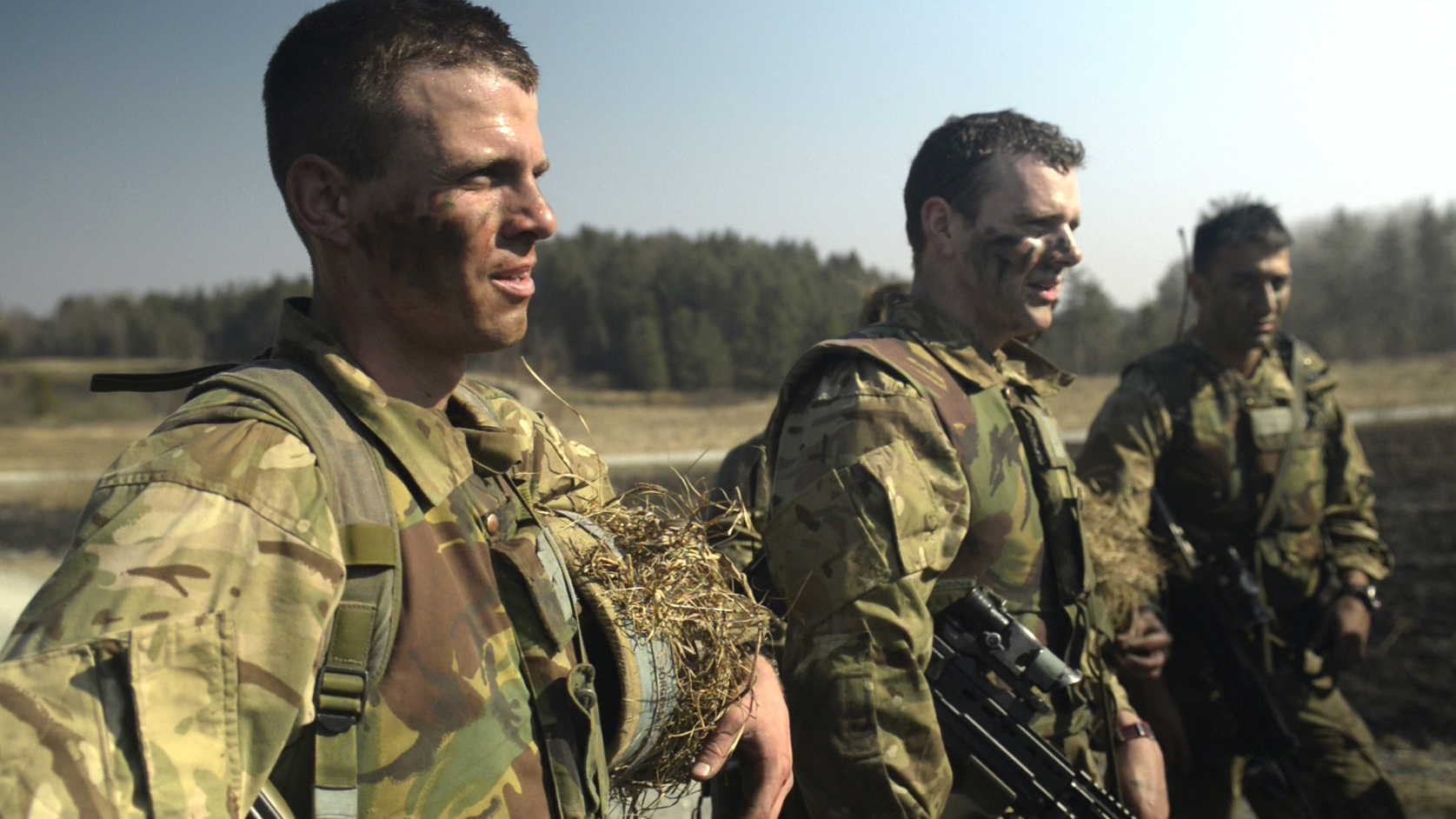This June, CT drew attention to veterans' experience in the cover story "Formed by War." To continue the discourse sparked by that story, alongside the Centurions Guild, CT will host an online series on Christian soldiers. The following essay is from Centurions Guild founder Logan Isaac and introduces the series, called Ponder Christian Soldiers. The second installment can be read here.
What does it mean to be a Christian soldier?
Some consider Christian and soldier to be nearly synonymous. Insofar as both the church and the military are engaged in bringing good news, justice, and democracy to the farthest reaches of the globe, the distinction between the two is permeable.
To others, “Christian soldier” is an oxymoron. To be one is to violate the requirements of the other. To be a good Christian, I must cease being a soldier; to become a soldier is to betray my Christian faith.
I came across both of these views repeatedly over several months in 2005, when, as a soldier on active duty, I prepared for my baptism. Those who identify as patriots told me that, since Israel was commanded to commit violence against her enemies, God clearly condones the use of violence to carry out his will today. Meanwhile, pacifists claimed that Jesus warned that those who lived by the sword would die by the sword; therefore soldiers like the Centurion of Great Faith (Matthew 8, Luke 7) are scriptural anomalies and not models for Christian behavior.
It seemed that to choose pacifism would be to abandon military service. To choose military service would be the betray all that Jesus stood for. In my memoir, I describe being subjected to such polarizing tales about Christian faith and military service, and how, as a result, the Christian story of God seemed fragmented and at odds with itself.
War Is Irreducibly Personal
In the 10 years since my baptism, I’ve been searching for a perspective that makes sense, for one that reflects God’s story of Christian soldiers. And despite the implicit message I received—that the balance between faith and service is a zero-sum game—I believe that written in the pages of the Bible and across church history is indeed a story about Christian soldiers that transcends our polarized traditions.
While researching my second book, I found that both camps ignore significant aspects of the history of Christian soldiers. Pacifists, one the one hand, deny or downplay the impact that military service had on King David, Francis of Assisi, Joan of Arc, and John Perkins. Patriots, on the other hand, often overlook the concrete lessons about the church’s relationship with state power offered by military martyrs like Saint George, Franz Jagerstatter, the Hofer Brothers, and Tom Fox. Both ends of this theological spectrum have a selective interpretation of the faith that can leave Christian soldiers alienated from worship and from participating in the local church. Holding too closely to the ideas we have about war creates a stranglehold around the people for whom war is irreducibly personal.
The world God made is full of color; thus, our black-and-white thinking about Christian soldiers will fail to appreciate the complexity of military experience. Progressives are concerned that to value military service is to condone violence. But in reality, only a small portion of today’s force is directly responsible for committing martial violence. Meanwhile, conservatives worry that to reject violence per se is to reject the virtues and values made visible by the martial fraternity, such as courage, sacrifice, and conscientious obedience. Each side of the spectrum relies on caricatures, shorthand, and clichés instead of examining actual lives and experience.
This is why narrative is crucial to making theological sense of war. When we give proper attention to detail within embodied experiences, the moral complexity of organized violence comes into sharper detail. Caricatures rely on what Pope Francis called “simplistic reductionism” and they lose their power when we commit to listening to the complex story that Christian soldiers have to share.
Because the story of Christian soldiers has its place in the story of salvation history, it has a narrative unity over time. To recover this unity, the church needs to shake the dust off those stories, reexamining them so that the tension between God and country can be instructive. Adapting to tension is how we grow and mature.
After three years in formal theological training, I have not read or heard an account of Christian soldiers that reflects my six years of active duty. We forfeit the opportunity to learn when we reduce Christian soldiers to either/or equations to solve, or when we issue definite statements about “the troops.”
The story of Christian soldiers has been present in salvation history from the beginning, from King David and Cornelius in Scripture to Francis of Assisi and Ignatius of Loyola. Yet most theologies of war have mostly been formulated by those who have no direct personal military experience. We need to think and talk about war beginning not only from abstract speculation, but also from the lived experience of military service. That's why contemporary soldier saints are invaluable resources.
We want to invite conversation about the experiences of veterans. If you have a story to share, or a question to ask, direct those to Centurions Guild founder Logan Isaac at logan[at]centurionsguild.org.








